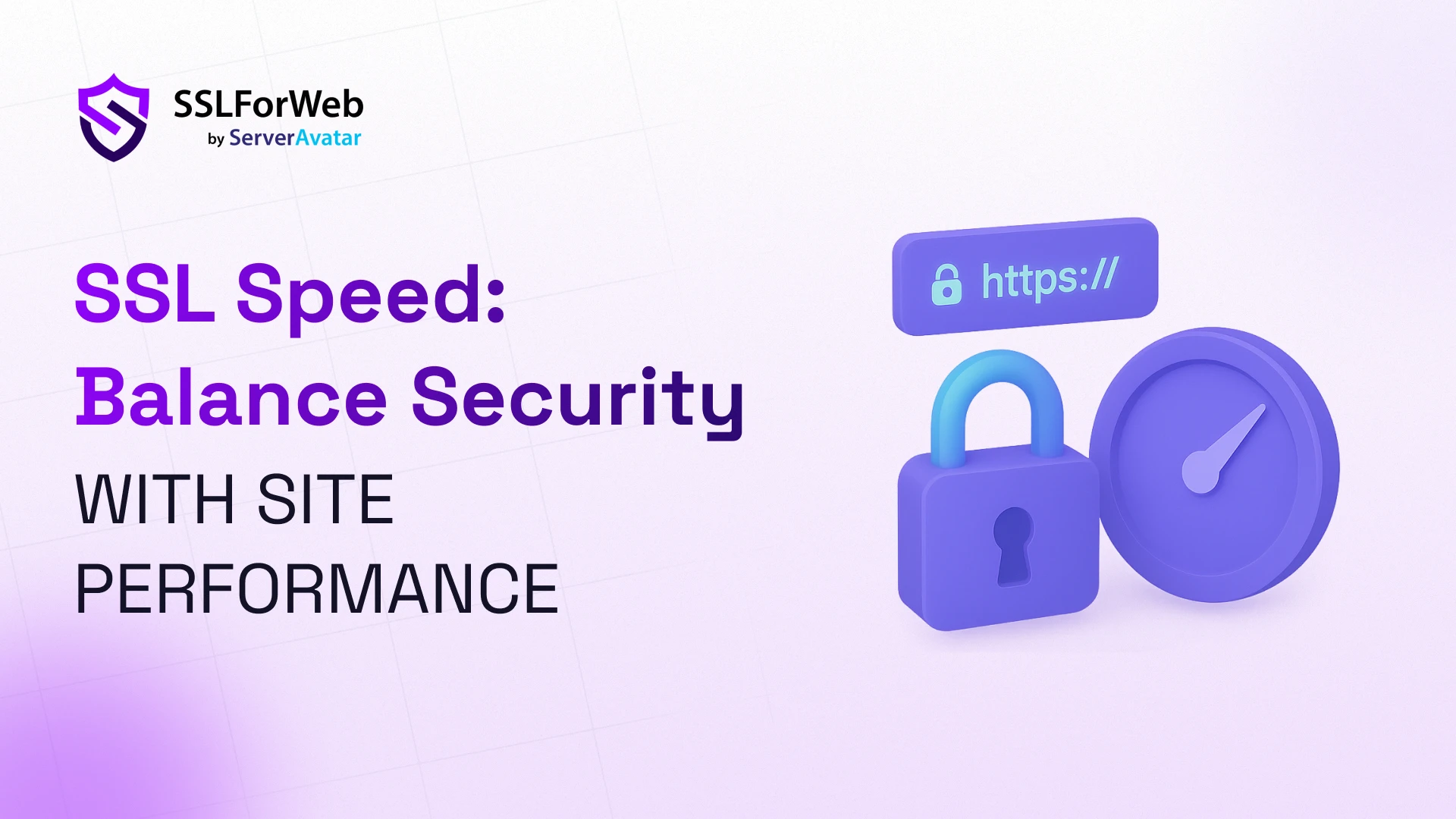SSL Speed has become a vital factor for every website in the digital age. SSL (Secure Sockets Layer) is no longer an optional feature; it’s a requirement. From boosting search rankings to safeguarding sensitive information, SSL ensures trust and reliability. However, many website owners still wonder: Does SSL slow down websites? The truth is, while SSL adds extra steps in communication, modern optimization techniques mean your site can be both secure and lightning-fast.
Understanding SSL Certificates
What is an SSL Certificate?
An SSL certificate encrypts the data exchanged between a browser and a server. This prevents attackers from intercepting sensitive information like credit card numbers, login credentials, and personal details.
Types of SSL Certificates
- Domain Validated (DV): Quick, cost-effective, ideal for blogs and small sites.
- Organization Validated (OV): Includes business verification, recommended for company websites.
- Extended Validation (EV): Provides the highest trust level with a green address bar.

How SSL Certificates Work
SSL uses a process called the handshake, where the browser and server exchange keys to establish a secure connection. While this adds microseconds of processing, the overall impact is minimal with modern hardware and optimized servers.
With SSLForWeb, securing your web application is quick and easy. It provides free SSL certificates with automatic installation and renewal, ensuring encrypted, safe connections for your visitors.
SSL and Website Performance
The Impact of SSL on Loading Speed
Years ago, SSL certificates were accused of slowing down websites. Today, the difference is almost negligible thanks to HTTP/2, TLS 1.3, and optimized hosting environments.
Common Myths About SSL Speed
Myth 1: SSL slows down your site.
Truth: With modern TLS and proper setup, the speed impact is almost zero. In fact, features like HTTP/2 and TLS 1.3 can even improve performance.
Myth 2: Free SSL is slower than paid SSL.
Truth: Both use the same encryption standards. Speed depends on server optimization, not whether the certificate is free or paid.
Factors That Influence SSL Speed
Handshake Process and Latency
The SSL handshake establishes trust but requires extra communication. Optimizing server response time can reduce this latency.
Encryption Strength and Processing Power
Stronger encryption (e.g., 2048-bit keys) is more secure but slightly heavier on processing. Choosing the right balance is essential.
Server Location and Configuration
Proximity of the server to the end-user significantly affects performance. Using a CDN (Content Delivery Network) can help.
Balancing Security and Speed
Best Practices for SSL Optimization
- Use TLS 1.3 for faster handshake.
- Enable HTTP/2 or HTTP/3 for improved parallel requests.
- Reduce redirects to save milliseconds.
How to Choose the Right SSL Certificate
Pick an SSL certificate based on your website type and trust level required. For example, an e-commerce store should invest in EV SSL.
CDN and Caching Strategies
CDNs cache encrypted content closer to the user. This ensures global visitors enjoy faster performance without compromising security.
Case Study: How SSL Impacts E-commerce Websites
E-commerce websites process sensitive transactions daily. Studies show that shoppers trust SSL-secured sites more. At the same time, optimized SSL ensures checkout speed isn’t compromised. A delay of even one second can reduce conversions by 7%, making SSL speed optimization crucial.
The Role of ServerAvatar in SSL Performance
What is ServerAvatar
ServerAvatar is a managed cloud hosting provider that simplifies the deployment, management, and monitoring of servers and applications, no deep technical expertise required.
With ServerAvatar, you can deploy servers directly on top-tier cloud providers like DigitalOcean, Vultr, Hetzner (with Linode coming soon), without requiring your own cloud provider account.
You can effortlessly deploy and manage multiple applications such as WordPress, Laravel, n8n, custom PHP, or Node.js apps. From one-click deployments to advanced monitoring, automation, and built-in security features, ServerAvatar allows you to focus on growing your business while we handle the technical complexities.
SSL certificates are essential for securing websites, building visitor trust, and improving SEO. With ServerAvatar, managing SSL is simple and hassle-free. You can install a free Let’s Encrypt SSL certificate for any of your applications in just a few clicks. The setup is fully automated, including auto-renewal, so your site always stays secure without manual effort. Whether you’re running a small blog, business site, or eCommerce store, ServerAvatar ensures your website is protected with modern encryption standards, fast, reliable, and cost-free.
- Access your ServerAvatar dashboard and select the server where your website is hosted.
- Go to the Applications section and pick the application you want to secure with SSL.

- Inside the application panel, navigate to SSL Certificate section.
- Click on Automatic Installation. ServerAvatar uses Let’s Encrypt to generate a secure certificate automatically.

- The certificate is configured with automatic renewal, so you never have to worry about expiry.
- Once installed, open your website with https:// and confirm the green padlock/security icon.
Future of SSL and Site Performance
The future is promising, with quantum-resistant encryption, AI-driven optimization, and further adoption of HTTP/3. The industry is heading toward a world where security enhances performance instead of hindering it.
FAQs
1. Does SSL slow down websites?
Not significantly. With modern servers and TLS 1.3, the impact is minimal.
2. Which SSL certificate is best for speed?
Speed doesn’t depend on the type of SSL but rather on server configuration and optimization.
3. Can free SSL certificates be trusted?
Yes, free SSL (like Let’s Encrypt) offers the same encryption as paid ones. The difference lies in validation levels.
4. How do I test my website’s SSL speed?
Use tools like SSL Labs Test or GTMetrix to measure SSL performance.
5. What is the fastest SSL protocol?
TLS 1.3 is currently the fastest and most secure SSL protocol.
Conclusion
SSL is no longer optional. While it does add an extra step in communication, the benefits of encryption, SEO ranking boosts, and customer trust far outweigh the negligible speed impact. By leveraging modern protocols, server optimizations, and tools like ServerAvatar, website owners can achieve both top-notch security and lightning-fast performance.
Remember: A secure website is a fast-growing website. With the right SSL strategy, you don’t have to choose between speed and safety, you can have both.



